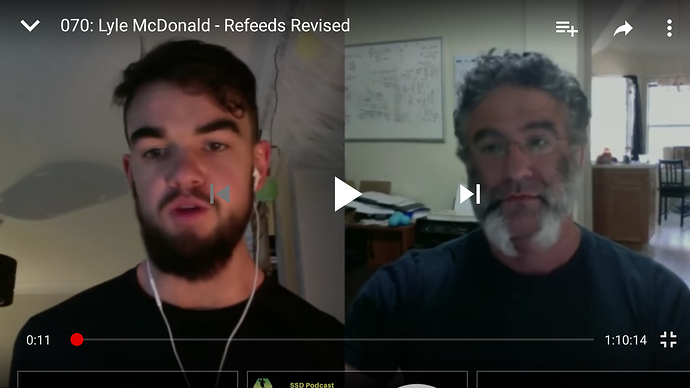I was reading Lyle McDonald’s Protein Book and I came across a statement in which he seems to suggest that, provided the workout is intense enough, no fat gain can result from the intake of carbs immediately post workout.
The statement is this:
[DISCLAIMER: small parts of the book are allowed to be publicly quoted, according to the author, if it’s for discussion purposes]
Research has repeatedly shown that muscular insulin sensitivity is up regulated following
both resistance and endurance training although the mechanisms are different for each
type of training (69). Improvements in insulin sensitivity also depend on the total
amount of training done with a threshold caloric expenditure of 500-900 calories per
workout being necessary (70,71). […]
The training induced increase in insulin sensitivity is likely to be a major mechanism
behind the “window of opportunity” following training, skeletal muscle is primed to take
up nutrients at an accelerated rate. This means that the chance of calories being pushed into fat storage is minimized if not eliminated. […]
following glycogen depleting endurance exercise, research has clearly shown that the ingested carbohydrates go towards glycogen storage while the body continues to rely on fatty acids for fuel. This occurs despite an increase in insulin levels from the carbohydrates.
This holds true for massive carbohydrate intakes as well. In one study, subjects were given 5 g/kg of carbohydrate (500 grams carbohydrate for a 100kg athlete) following 90 minutes
of moderate exercise and de novo lipogenesis (DNL, the conversion of carbohydrate to fat)
was studied; not only did no DNL occur but the body continued to burn fat in the post-
exercise period (74). Essentially, when glycogen is depleted from training, incoming
carbohydrates go to glycogen storage while the body continues to use fatty acids for fuel;
raising insulin post-workout does not interfere with this.
While I already knew that carbs are less likely to be stored as fat when consumed post workout, the claim here is that, provided the workout is intense enough (in this case this reads as: burns enough calories from muscle glycogen), a massive (virtually unlimited?) amount of carbs can be consumed up to 90 minutes following the session, with virtually none of it being used towards fat storage.
How does this statement relate to your experience?
Does this mean that excess carbs are oxidized for energy or are they actually uptaken by the muscle for glycogen repletion and growth?

